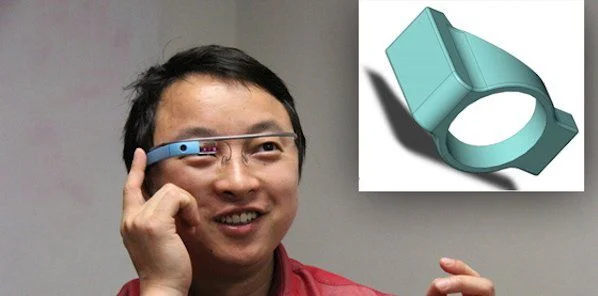Medical professionals who use Google Glass for training and surgical applications may soon have an expanded visual field, thanks to an accessory lens which is awaiting US patent approval. The “Google Lens” device was developed by professors Jibo He and Barbara Chaparro at Wichita State University (WSU) in Kansas, with the help of WSU graduate student Long Wang.
Google Glass has a built-in camera that allows video to be shared with remote audiences. The wearable technology uses voice control to enable users to check information, which is displayed on its transparent, head-mounted display. Voice control frees the hands for other uses, such as surgery. The applications of Google Glass range from medical training to flying airplanes.
Currently, the webcam built in to Google Glass has a relatively narrow visual field: 54.8 degrees across and 42.5 degrees up and down. This limited view hampers its usefulness in some applications, including surgery and the training of medical students. Google Lens is designed to help users of Google Glass to capture more of their surroundings, which could be beneficial for practitioners who use the device to broadcast webcam videos to conferences or classrooms.
"Despite all of its remarkable features, Google Glass has some limitations in its hardware,” said Prof. He. “The object they want to broadcast may be out of the field of view of Google Glass.”
Google Lens expands the visual field to 109.8 degrees horizontally and to 57.8 degrees vertically. All in all, the view becomes 58 percent wider and 34 percent longer. It attaches to Google Glass by a small holder, and can be easily changed.
“The accessory lens helps remedy the bottleneck of Google Glass' camera and improves and expand Google Glass' application in professional areas," Prof. He said.
Beyond the medical industry, Google Lens could serve other researchers, pilots and drivers with disabilities with its expanded field of vision.
The patent for Google Lens is pending.
Source: Wichita State University
Image Credit: Wichita State University









